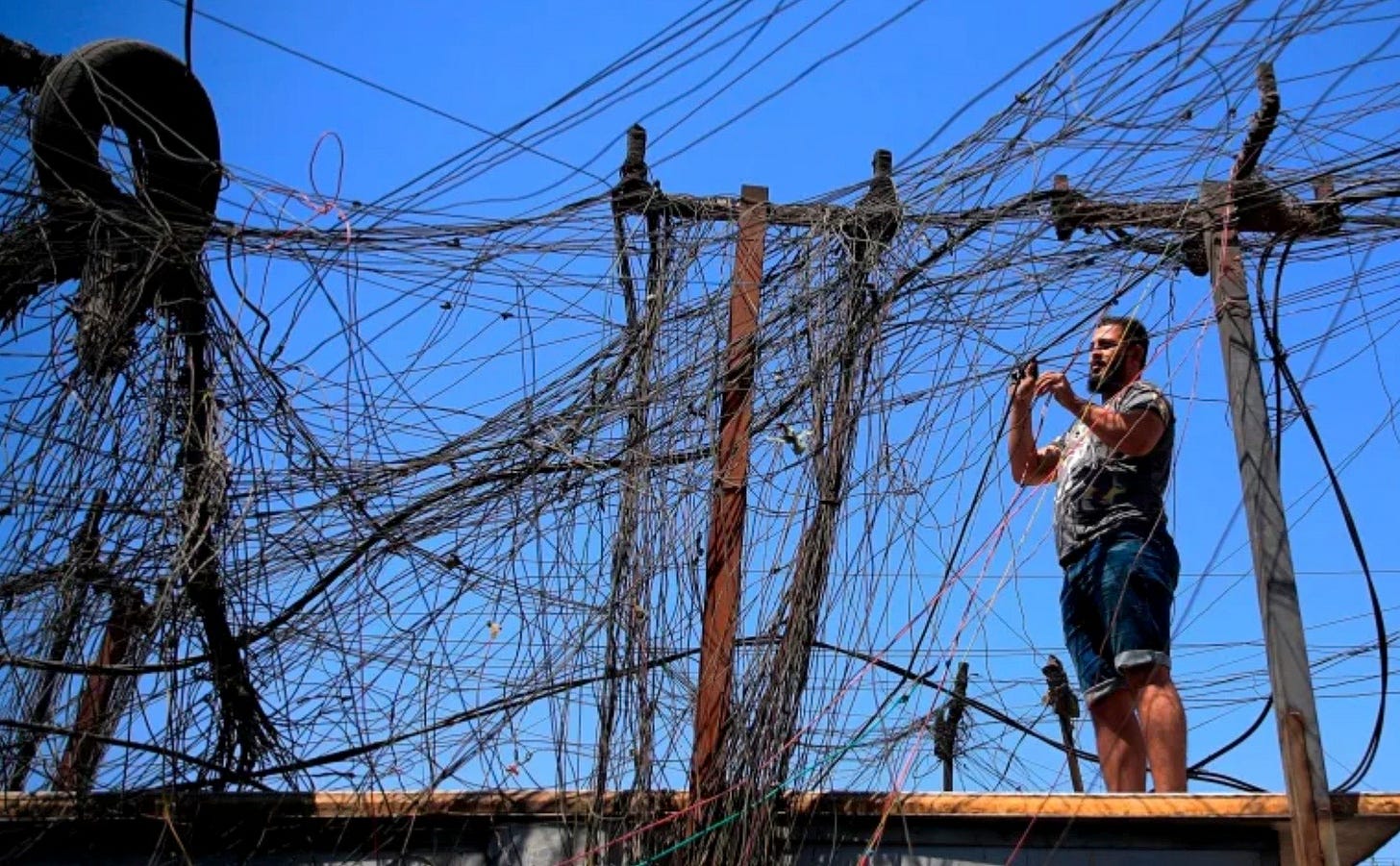The Enemy Of My Enemy Is My Electricity Provider
Iraq will be a loser if there’s a prolonged war between Israel and Iran.

Yesterday’s bombing of three nuclear sites in Iran by US warplanes has brought American forces into yet another war in the Middle East.
President Donald Trump’s decision to order the bombing may have been inevitable. As the editors of National Review put it in an editorial published a few hours after B-2 bombers dropped bunker-busting munitions on Iran’s nuclear facilities, “The prospect of Iran’s radical Islamist regime obtaining a nuclear bomb has haunted American foreign policy for decades.”
Trump’s decision will be debated for a long time to come, and it’s far too early to know how (or when) the war between Israel (and the US) and Iran will end. But one country is already looking like a loser in the ongoing conflict: Iraq.
Over the past decade, Iraq has increasingly relied on Iran for electricity and natural gas supplies. As Israel and Iran continue their bombing and missile attacks, energy infrastructure — including power plants and gas facilities — will inevitably be targeted and that will result in further immiseration of Iraqis, who have been suffering from power shortages ever since the fall of Saddam Hussein.
While pundits and politicians are focused on Iran’s reaction, the possibility of regime change, and what might happen next in the Middle East, it’s essential to understand how Iran and Iraq, two countries that spent eight years fighting a bloody war with each other during the 1980s, became energy interdependent.
Let’s take a look.
Keep reading with a 7-day free trial
Subscribe to Robert Bryce to keep reading this post and get 7 days of free access to the full post archives.




